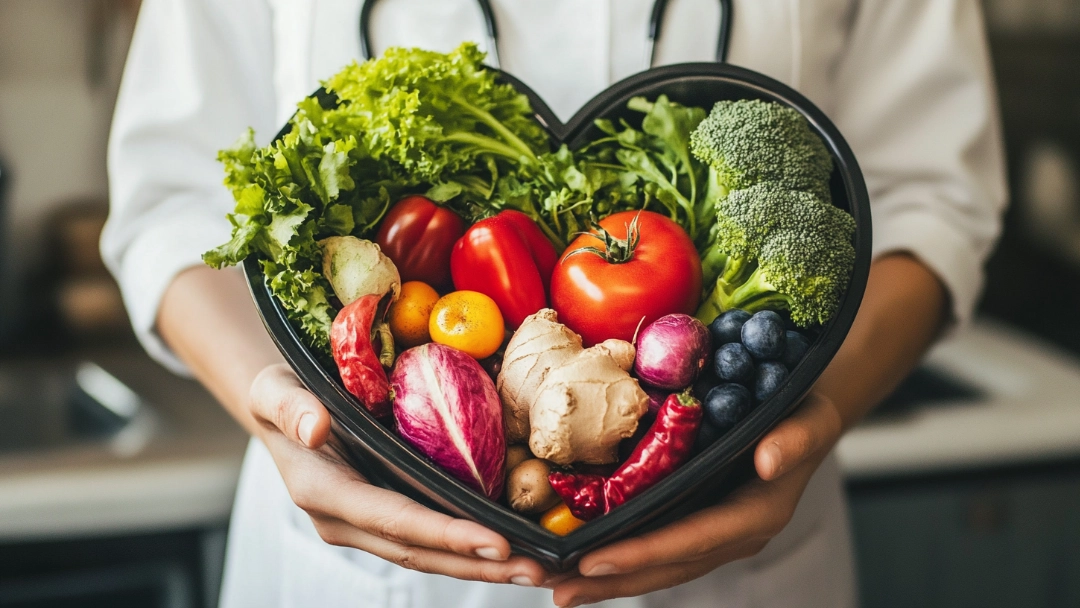
Semaglutide Side Effects? Your Plate May Be the Problem
Semaglutide Side Effects: How a Vegan Diet Can Help
In a late night interview recently, Tracy Morgan was asked why he looks so great. He smiles with a one-word response, “Ozempic.” He also claims to have gained weight while taking the drug. In fact, many have claimed to suffer side effects, too.
For those who have not heard yet, Ozempic® and Wegovy® are brand names for the weight loss and diabetes drug generically named semaglutide. Because diabetes type 2 and obesity run in my family, I can’t help but think of my siblings when I see a celebrity open up about their health and weight struggles. I also approach food as medicine and understand that nurturing our bodies with nutrition-rich vegetables, grains and fruits heals and strengthens our gut microbiome.
All drugs have side effects
Every FDA-approved drug sold over the counter or by prescription has a warning label. While civil lawsuits have popped up against the drug, the medical community has been quick to defend the efficacy of semaglutide, as in the interview below:
In the video above, Nurse Practitioner Crystal Roni Smith points out that many people who are experiencing problems are those who are not changing their diets. “If you are slowing down the gut to utilize more glucose but still eating a half a bag of Doritos, you are not eating nutrients.”
Questions About Pairing Semaglutide With a Vegan Diet
- Is semaglutide vegan? I have come across search results that claim semaglutide is not vegan because of the yeast used to create it. However, live yeast is a fungi, not an animal, and so not considered off limits in a vegan diet.
- Does a vegan diet help or hurt the efficacy of semaglutide? Semaglutide is part of a class of drugs known as glucagon-like peptide-1 (GLP-1) receptor agonists, which mimic GLP-1 in order to stimulate insulin production and dial down hunger signals. A whole foods, plant-based diet also supports the GLP-1 hormone, making it more likely that a person sticking to a vegan diet after going off the medication is more likely to maintain their weight and health than a person who eats meat and processed foods.3.
- Can a vegan diet replace this expensive drug? This is only a question you can answer for yourself in consultation with your doctor. For some, taking semaglutide to help kickstart your shift to a healthier lifestyle may be the answer. Talk to your doctor or a registered dietitian about incorporating more plant-based foods into your diet.
Semaglutide can be a game-changer for weight loss. But let's be real, no one enjoys those side effects. Nausea, constipation, and fatigue are common complaints. But here's the good news: a vegan diet might be your secret weapon to mitigating unwanted side effects from the drug.
Here's why:
- Nausea Relief: Plant-based foods are naturally lower in fat, which can be easier on your stomach as you adjust to semaglutide. Think soothing smoothies, comforting soups, and fiber-rich fruits and veggies.
- Conquer Constipation: Fiber is your best friend when it comes to constipation, and vegan diets are packed with it. Load up on beans, lentils, whole grains, and leafy greens to keep things moving.
- Energy Boost: Ditching the Doritos and other processed foods and embracing whole, plant-based options can work wonders for your energy levels. Think vibrant salads, hearty veggie bowls, and nutrient-packed snacks.
Plant-based Foods for Semaglutide Support:
- Ginger: a natural nausea-buster. Sip on ginger tea or add fresh ginger to your meals.
- Flaxseeds: the king of seeds. These nutrient-rich, fiber powerbombs can help regulate digestion and combat constipation.
- Berries: Packed with antioxidants and, yes, more fiber, berries are a delicious way to support gut health and boost energy.
- Leafy Greens: Spinach, kale, and other leafy greens are nutritional power boosts, providing essential vitamins and minerals for overall well-being.
Important Note:
- This content is for informational purposes only and should not be considered medical advice.
- Always consult with your doctor before making any changes to your diet or medication regimen.
- Individual experiences may vary, and it's essential to listen to your body and seek professional guidance.
+++++++++++++++++++++++++++++++++++++
